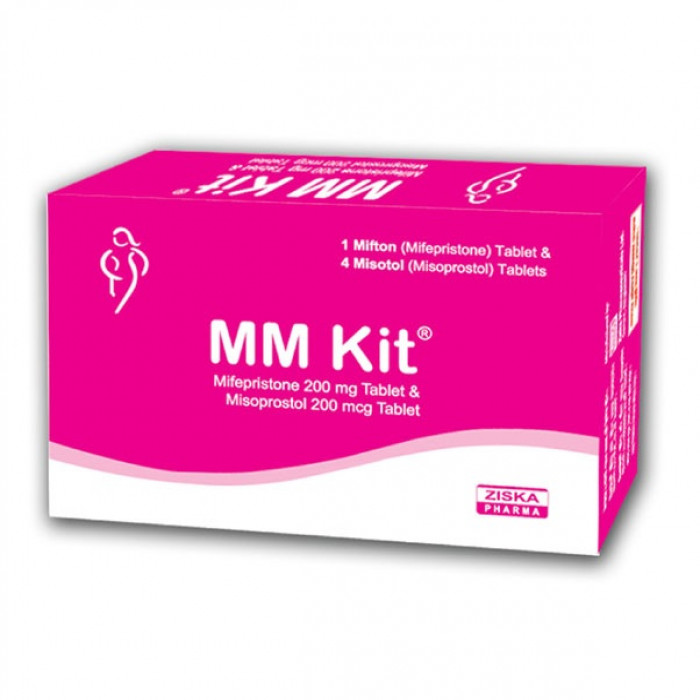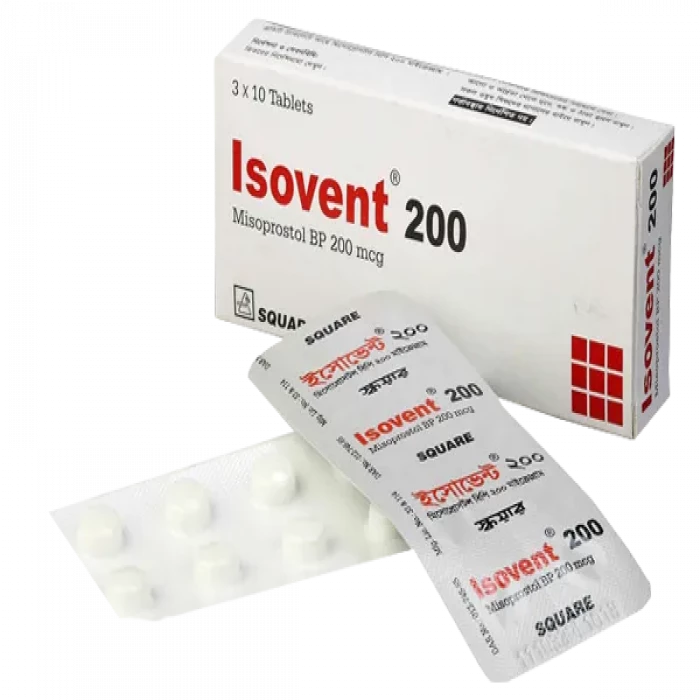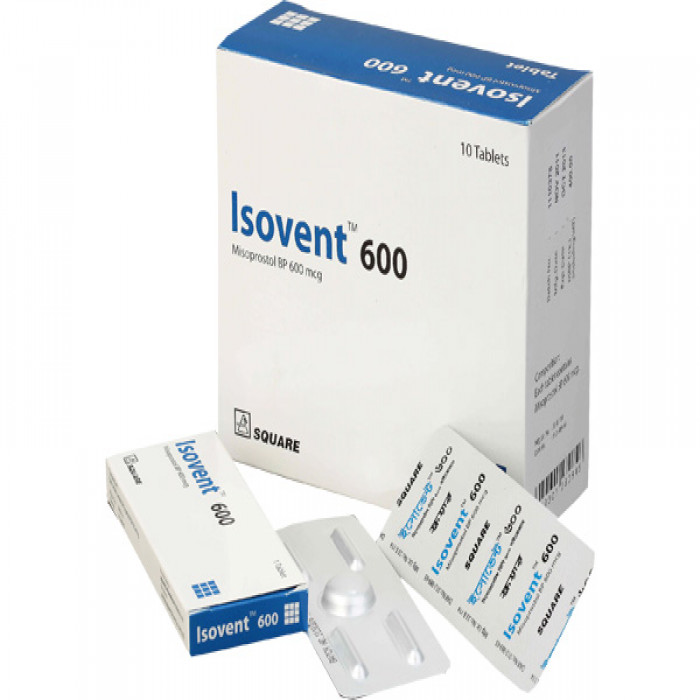
✔ 100% Authentic Product
👁️ Currently Viewing 4491
Mifeston 200mg Tablet (3pcs Box)
Mifeston 200mg Tablet (Mifepristone) is utilized for medical termination of pregnancy and as an emergency contraceptive to prevent pregnancy in women following unprotected sexual intercourse. It is commonly employed within 63 days of the last menstrual period. It can also be used in combination with other abortion pills or prostaglandin therapy to aid the abortion process.
Discount
Price: ৳ 499
MRP:
৳
525
5%
Off

100% Genuine Products, Guaranteed

Safe & Secure Payments, Always

Fast, Secure & Efficient Delivery

Proper Packaging
 Cash on Delivery - All over Bangladesh
Cash on Delivery - All over Bangladesh Regular Delivery - 12-24 Hours, Dhaka City* Charge Tk.39-59
Regular Delivery - 12-24 Hours, Dhaka City* Charge Tk.39-59 Regular Delivery - 24-48 Hours, Other Cities* Charge Tk.99-110
Regular Delivery - 24-48 Hours, Other Cities* Charge Tk.99-110
 ফ্রি ডেলিভারিঃ - ৯৯৯ টাকা+ অর্ডারে, ঢাকা
শহরে
ফ্রি ডেলিভারিঃ - ৯৯৯ টাকা+ অর্ডারে, ঢাকা
শহরে ফ্রি ডেলিভারিঃ - ২৯৯৯ টাকা+ অর্ডারে, ঢাকার
বাহিরে
ফ্রি ডেলিভারিঃ - ২৯৯৯ টাকা+ অর্ডারে, ঢাকার
বাহিরে
100% Genuine Products, Guaranteed
Safe & Secure Payments, Always
Fast, Secure & Efficient Delivery
Proper Packaging
 Cash on Delivery - All over Bangladesh
Cash on Delivery - All over Bangladesh Regular Delivery - 12-24 Hours, Dhaka City* Charge Tk.39-59
Regular Delivery - 12-24 Hours, Dhaka City* Charge Tk.39-59 Regular Delivery - 24-48 Hours, Other Cities* Charge Tk.99-110
Regular Delivery - 24-48 Hours, Other Cities* Charge Tk.99-110 ফ্রি ডেলিভারিঃ - ৯৯৯ টাকা+ অর্ডারে, ঢাকা
শহরে
ফ্রি ডেলিভারিঃ - ৯৯৯ টাকা+ অর্ডারে, ঢাকা
শহরে ফ্রি ডেলিভারিঃ - ২৯৯৯ টাকা+ অর্ডারে, ঢাকার
বাহিরে
ফ্রি ডেলিভারিঃ - ২৯৯৯ টাকা+ অর্ডারে, ঢাকার
বাহিরে
✅ Description:
Mifepristone, which belongs to the class of medications called "progestin antagonist," is used in combination with Misoprostol to induce a medical abortion. It is primarily used to terminate early pregnancies (up to 70 days or less) or unwanted pregnancies with medication.
Mifeston 200mg Tablet contains Mifepristone, which works by blocking the effects of progesterone, a female hormone necessary to sustain a pregnancy. Without progesterone, the uterine lining breaks down, similar to the menstrual cycle, and pregnancy growth is halted. It usually takes 24-48 hours for MIFEPRISTONE to take effect, leading to uterine bleeding. However, the absence of uterine bleeding does not indicate a completed abortion.
Choosing a medical abortion is a significant decision, and one should be mentally prepared for potential risks, such as incomplete abortion, heavy and prolonged bleeding (which may last up to 30 days), fever, and gastrointestinal discomfort. In cases where the medication doesn't work, there's a risk of an ongoing unwanted pregnancy and potential fetal defects. To minimize complications, it's essential to stay in regular contact with your doctor and follow their guidance.
Mifepristone should be taken according to the prescribed dose and duration, preferably with food, at the same time daily. It is an oral tablet that should be swallowed with a glass of water. Some individuals may experience side effects such as nausea, uterine cramps, vomiting, diarrhea, infection following abortion, dizziness, and uterine bleeding. Most of these side effects tend to resolve over time. However, if vaginal bleeding persists, it requires immediate medical attention, and you should consult your doctor without delay.
It is crucial not to discontinue MIFEPRISTONE abruptly without consulting your doctor, as this can lead to an incomplete abortion. Before starting Mifepristone, inform your doctor if you have a history of ectopic pregnancy (when the fetus grows in the fallopian tube), use an intrauterine device, breastfeed, have a bleeding disorder, or have heart problems. To prevent excessive bleeding, avoid strenuous activities like running, heavy exercise, or driving. The doctor will also conduct an ultrasound to confirm whether the abortion is complete, as the absence of bleeding doesn't necessarily indicate a completed abortion.
Safety Advices

Alcohol
UNSAFE
Alcohol should be avoided when taking Mifeston 200mg Tablet, as it can lead to excessive drowsiness and increased uterine bleeding.

Pregnancy
UNSAFE
Mifeston 200mg Tablet is used for medical abortion, and taking it during pregnancy can result in an abortion.

Breastfeeding
UNSAFE
If you are a nursing mother, inform your doctor before taking Mifeston 200mg Tablet. Your doctor will determine whether it can be taken while breastfeeding.

Driving
UNSAFE
Mifeston 200mg Tablet may reduce alertness, induce sleep, and cause dizziness. If you experience these symptoms, do not drive or operate machinery.

Kidney
CONSULT YOUR DOCTOR
Mifeston 200mg Tablet should be taken with care, especially if you have a history of kidney diseases or conditions. The dose may need to be adjusted by your doctor.

Liver
CONSULT YOUR DOCTOR
Take Mifeston 200mg Tablet with care, especially if you have a history of liver diseases or conditions. The dose may need to be adjusted by your doctor.
✔️ Uses of Mifeston 200mg Tablet
Medical Abortion
✔️ How does
Mifepristone is an abortion pill that blocks the actions of the hormone progesterone, essential for maintaining pregnancy. This leads to the shedding of the uterine lining, making it challenging for the fetus to implant and grow. Additionally, it elevates levels of prostaglandins in the uterus, which can disrupt uterine membranes, resulting in abortion.
✔️ Side Effects of Mifeston 200mg Tablet
Common side effects include uterine contractions, cramping, and bleeding. Heavy bleeding may occur in some cases. Rare adverse effects encompass uterine rupture, hypotension, skin rashes, urticaria, hot flashes, and dizziness.
✔️ Quick Suggestions:
- Avoid consuming grapefruit or grapefruit juice while taking mifepristone, as it may interfere with the metabolism of the medication
- Stick to simple meals. Avoid eating oil-rich or spicy foods. Consult your doctor if your nausea worsens
- Rest and relax. Keep yourself hydrated by drinking plenty of fluids such as water or electrolytes
- Try to rest and relax. Get enough sleep. Avoid driving or operating any tools or machines completely while you are feeling dizzy. Do not consume excessive alcohol, as it could aggravate your dizziness
✔️ Indication
Mifepristone is a medication used as a non-surgical alternative for ending intrauterine pregnancies. It can be employed in the following scenarios:
Medical Termination of Pregnancy: Mifepristone is used to terminate early intrauterine pregnancies. A single oral dose of 600 mg is followed by the administration of a prostaglandin analog like Misoprostol or Gemeprost after 36-48 hours.
Cervical Softening and Dilation: Mifepristone is used to prepare the cervix for surgical pregnancy termination. A dose of 200 mg is administered 36-48 hours before the surgical procedure.
Preparation for Prostaglandin Analog Use: It is employed to prepare for prostaglandin analog administration in the medical termination of pregnancy. A 600 mg dose of Mifepristone is taken as a single oral dose 36-48 hours before scheduled prostaglandin administration.
Labor Induction for Expulsion of Deceased Fetus: In cases of fetal death in utero, Mifepristone is administered as a 600 mg single oral dose for two consecutive days. If labor does not commence within 72 hours after the first dose, traditional labor-inducing methods are used.
✔️ Pharmacology
Mifepristone competitively binds to intracellular progesterone receptors, suppressing progesterone's actions. It increases the sensitivity of the myometrium to prostaglandin-induced contractions and blocks cortisol function at the glucocorticoid receptor.
✔️ Dosage & Administration of Mifeston 200mg Tablet
The dosage and administration of Mifepristone differ based on its use. In medical termination of pregnancy, it's taken as a 600 mg single oral dose followed by prostaglandin analog administration. It's crucial to follow the specific dosing instructions provided by a healthcare professional.
✔️ Interaction
Ketoconazole, itraconazole, erythromycin, grapefruit juice, rifampicin, dexamethasone, St. John's Wort, and various anticonvulsants can interact with Mifepristone, impacting its metabolism.
✔️ Contraindications
Mifepristone is contraindicated in cases of uncertain pregnancy or suspicion of ectopic pregnancy. It should not be used if the pregnancy has advanced beyond specific gestational limits or in various medical conditions. It must never be prescribed to patients with chronic adrenal failure, known allergies to Mifepristone, severe uncontrolled asthma, porphyrias, renal or hepatic failure, or during breastfeeding.
✔️ Pregnancy & Lactation
Mifepristone is solely approved for use in pregnancy termination. It is not known to be excreted in human milk, but its impact on newborns is unclear, so women breastfeeding after Mifepristone use should consult their doctor.
✔️ Precautions & Warnings
Mifepristone should be administered under medical supervision and is not advised for patients with specific medical conditions. Patients over 35 years old and heavy smokers should be treated cautiously. The effectiveness of Mifepristone may be reduced if Misoprostol is administered more than two days after Mifepristone.
✔️ Storage Conditions
Store Mifepristone at 25°C.
⚠️Disclaimer:
At ePharma, we’re committed to providing accurate and accessible health information. However, all content is intended for informational purposes only and should not replace medical advice from a qualified physician. Please consult your healthcare provider for personalized guidance. We aim to support, not substitute, the doctor-patient relationship.












